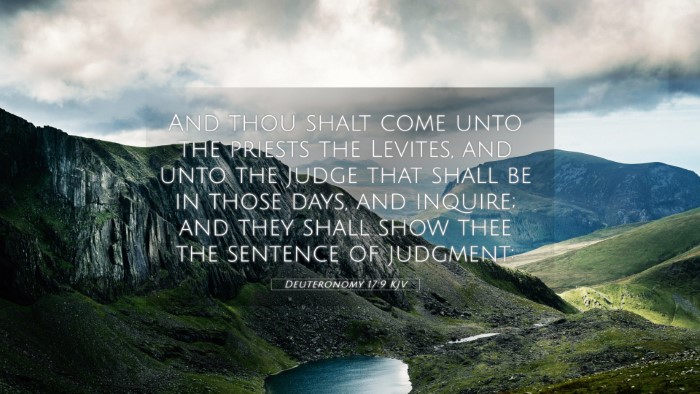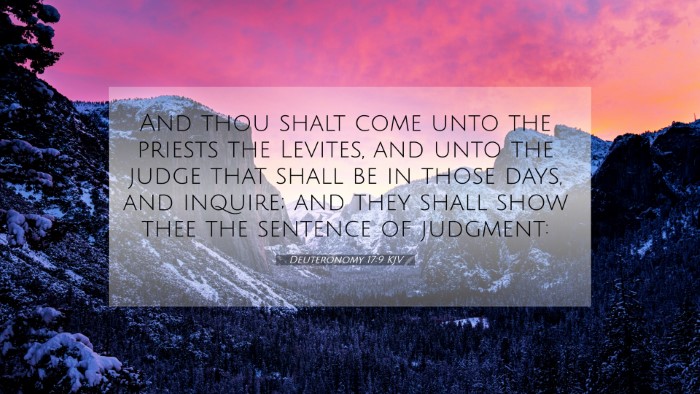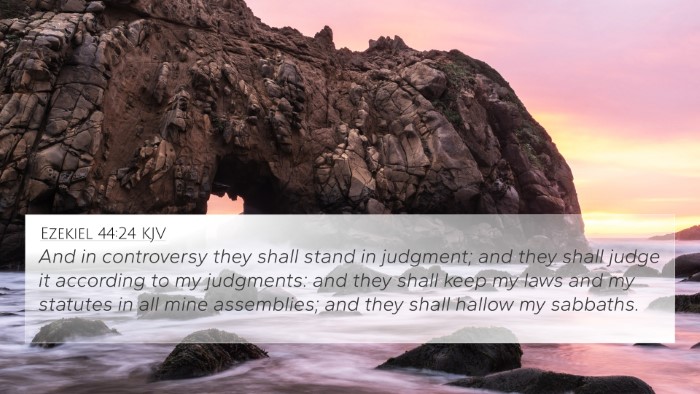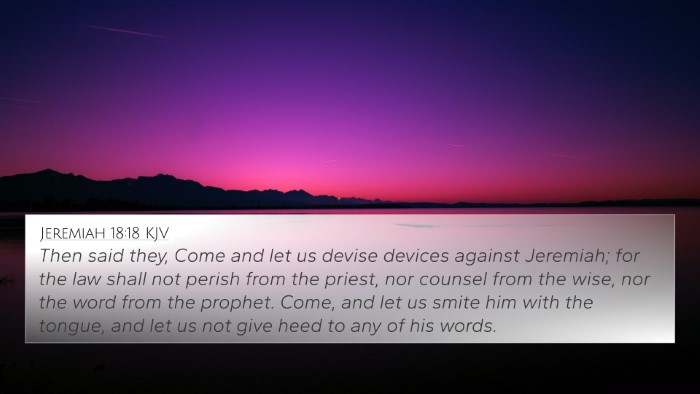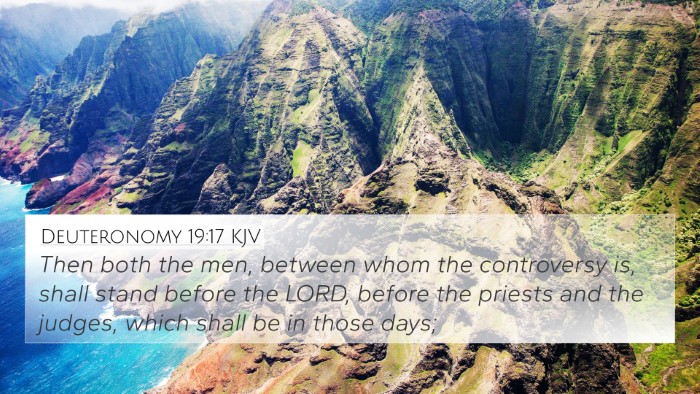Understanding Deuteronomy 17:9
Verse: "And thou shalt come unto the priests the Levites, and unto the judge that shall be in those days, and inquire; and they shall show thee the sentence of judgment."
Summary of Meaning
Deuteronomy 17:9 emphasizes the importance of seeking counsel from the appointed religious leaders and judges when faced with complex decisions or legal matters. This verse reflects the theological structure of Israelite society, which was built upon divine law and an established leadership responsible for guiding the people in righteousness.
Commentary Insights
- Matthew Henry: Henry highlights that this command showcases the necessity of divine guidance in all matters, contrasting human judgment with spiritual discernment offered by Levites and judges. It emphasizes the importance of collective worship and the acknowledgment of God's sovereignty.
- Albert Barnes: Barnes discusses the role of the priests and judges in Israel, noting their responsibility to interpret the law and administer justice, which serves as a practical application for believers in seeking wisdom and guidance through God's word.
- Adam Clarke: Clarke elaborates on the tasks of the Levites and judges, stressing their qualifications and roles in ensuring that God’s statutes are followed, and how this relates to modern-day discernment within the church structure.
Thematic Connections
This verse serves as a gateway to understanding several themes in the Bible, such as:
- Authority: The structure of authority in the Old Testament is a precursor to the governance model of the New Testament Church.
- Wisdom and Counsel: Encouragement to seek wise counsel extends through the Scriptures, highlighting the interdependence of community and leadership.
- Justice: The verse marks significant judicial practices, showing God's concern for justice within society.
Cross-References
Deuteronomy 17:9 is related to various other Bible verses that reinforce its themes and directives:
- Exodus 18:19-20: The advice of Jethro to Moses about appointing judges.
- Numbers 27:21: The guidance of the priest during decisions.
- Proverbs 11:14: Seeking wisdom in a multitude of counselors.
- 1 Timothy 5:17: The role of elders in the church.
- James 1:5: Asking God for wisdom.
- Micah 6:8: The call for justice and humility.
- Acts 15:6: The apostles' council regarding church matters.
Practical Application
In terms of practical application, believers are encouraged to:
- Seek out spiritual leaders for guidance during difficult decisions.
- Study the Scriptures diligently, utilizing tools such as a bible concordance and bible cross-reference guide to deepen understanding of biblical contexts.
- Engage in community discussions that reflect godly counsel, reinforcing the collective authority of the church.
Inter-Biblical Dialogue
Deuteronomy 17:9 creates a dialogue between the Old Testament practices and New Testament developments, displaying trends of seeking God's guidance through appointed leaders. This encourages modern believers to recognize authoritative voices in their spiritual journeys.

